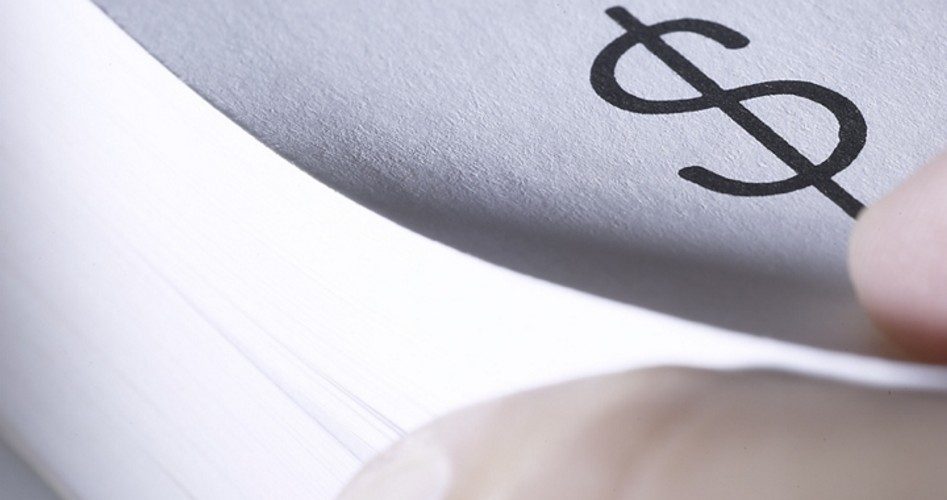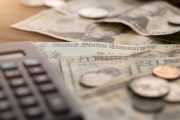
Despite frantic opposition by the privately owned Federal Reserve and Democrat leadership in Congress, newly empowered Republican lawmakers, now in the majority in the Senate as well, plan to hold a vote on “Audit the Fed” legislation to scrutinize the secrecy-obsessed central bank. Federal Reserve bosses are already lashing out and lobbying lawmakers “forcefully” to reject efforts at congressional oversight and transparency. Senator Rand Paul (R-Ky.) and a coalition of his colleagues, though, are determined to see the bill become law this year, and congressional leadership has pledged to allow a vote.
Supporters of the audit point to the central bank’s wild schemes amid the economic crisis to create trillions of dollars out of thin air and bail out mega-banks, cronies, foreign corporations, and even banks owned by hostile foreign powers. Critics of the Federal Reserve’s cloak of secrecy also cite its blatant and well-documented manipulation of markets, its distortion of interest rates leading to widespread malinvestment, its outlandish expansion of the currency supply, the steady erosion of the value of the U.S. dollar, the enabling of exploding government deficits, and much more.
The wildly popular audit bill, long championed by former Representative Ron Paul and supported by an overwhelming supermajority of Americans in polls, would properly open up the books at the Federal Reserve for the first time since the central bank’s creation in 1913. The House of Representatives has twice passed the legislation with large majorities. In September of 2014, “Audit the Fed” was approved by a landslide in the House — 333 in favor of oversight, 92 against. Virtually every Republican and more than half of Democrats voted to support the effort.
However, with establishment-minded Senator Harry Reid (D-Nev.) ruling the Senate with an iron fist in recent years, Federal Reserve apologists and cronies in Congress have been able to block a vote thus far. In both 2012 and 2014, Reid successfully quashed the House bill by never bringing it up — even though polls showed three out of four Americans supported the effort, while a mere one in 10 opposed transparency at the Fed. In 2015, though, that changes.
A spokesman for Senator Paul, the son of perhaps the most well-known advocate for honest money on the planet, vowed to make sure that the legislation would be available in the new Congress. “It will be among the first pieces of legislation to be introduced as soon as the new Congress convenes in January,” the spokesman was quoted as saying in the Washington Times. “Transparency at the Federal Reserve remains a top priority for Senator Rand Paul.”
Campaign for Liberty, a freedom-oriented grassroots organization tied to former congressman and three-time presidential candidate Ron Paul, even suggested that Reid’s loss of power in the Senate was linked to his opposition to transparency at the central bank and other broadly supported initiatives. “His refusal to bring popular legislation like ‘Audit the Fed’ to the floor is a major reason why he’s being demoted to minority leader,” C4L leader Norm Singleton told the Times. “The change in Senate leadership does present us with the best opportunity yet to get a stand-alone vote on ‘Audit the Fed.’”
However, because of tough opposition from the Fed and its powerful cronies benefiting from central banking schemes, getting an audit into law is not yet guaranteed in 2015 — meaning Americans will have to work hard if they hope to pry open the banking cartel’s books. “This is popular with 75 percent of the American people, but it’s not popular among Wall Street; it’s not popular among banks; it’s not popular among foreign central banks,” Singleton added. “These hold a fair amount of sway among both parties.” While he expects that moving the legislation now faces better odds than before, “It’s not a slam dunk.”
Mark Calabria, a director of financial regulation studies at the libertarian-leaning Cato Institute, echoed those sentiments in comments to Reuters. “The likelihood of re-introduction of the audit bill is essentially 100 percent,” said Calabria, who also served as a staffer for Alabama Senator Richard Shelby, expected become chairman of the Senate Banking Committee. “The question is whether both the House and Senate pass it in its current form. Certainly the odds of it passing have greatly increased.”
Still, the Fed, which is unimaginably powerful, has been lobbying hard against transparency (with your money) for years in an effort to continue concealing its scheming from the public amid growing outrage among voters. With newly empowered Republicans taking over Congress and surging momentum for an audit, top Fed bosses are redoubling their lobbying and propaganda campaigns, wining and dining lawmakers while making hysterical claims about how allegedly dangerous transparency and oversight might be.
“Back in 1978 Congress explicitly passed legislation to ensure that there would be no [Government Accountability Office] GAO audits of monetary policy decision-making, namely policy audits,” current Fed boss and spread-the-wealth inflationist Janet Yellen told reporters at a recent press conference. “I certainly hope that will continue, and I will try to forcefully make the case for why that’s important.” Bosses at the privately owned regional Fed banks are also working hard against transparency, openly touting their meetings with lawmakers aimed at quashing the will of the vast majority of Americans.
A recent so-called audit of the Fed — actually a severely watered-down version — passed as part of the “Dodd-Frank” bill. Despite its troublesome limitations that were widely decried by transparency supporters, even that limited audit, released in early 2011, revealed a great deal. During a two-and-a-half-year period, for example, the audit showed that the central bank had provided more than $16 trillion — yes, trillion with a T — in bailouts to mega-banks at home and abroad, as well as other companies. For perspective, that figure amounts to about the annual U.S. GDP. The final report also uncovered massive conflicts of interest throughout the monetary and banking apparatus.
Separately, a lawsuit against the central bank by Bloomberg and Fox News also shed some light on the Federal Reserve’s machinations in early 2011. In court, the New York Fed argued that, because it is a private corporation with private shareholders that elect its board, it was not required to comply with Freedom of Information Act (FOIA) requests. The court ordered the release of documents anyway. It turns out that among the major beneficiaries of the Fed’s bailout and wealth-transfer schemes were foreign firms, including a bank owned by the late Libyan dictator Moammar Gadhafi’s central bank.
Other foreign banks that were bailed out by the U.S. central bank through the discount window — sometimes to the tune of tens or even hundreds of billions of dollars — included Bank of China, Société Générale of France, Royal Bank of Scotland, Dexia, Erste Group, Arab Banking Corp., Commerzbank, Depfa, Landesbank Baden-Württemberg, Norinchukin Bank, and many more. Countless American banks such as Bank of New York and Morgan Stanley, both of which help set Fed policies, gobbled up big bailout money too — all at the expense of the struggling American people.
The Fed, of course, has sought to justify all of its wild currency printing and its wealth redistribution from poor and middle-class Americans to mega-banks. Its leaders, cronies, and apologists also argue that transparency would harm monetary policy “independence” — read: secrecy and lack of any semblance of accountability for its total mismanagement of the economy and the plundering of the American people. Finally, to justify its existence, the central bank points to its mandate to “fight” inflation and promote full employment.
In reality, critics say putting the Fed in charge of “fighting inflation” is tantamount to making an arsonist or pyromaniac into the fire chief — then allowing him to work in total secrecy with no accountability. Until recent decades, for instance, it was widely understood that inflation is really an inflation of the currency supply by the central bank — not an increase in prices, which is a mere side effect of expanding the amount of currency circulating in the economy. The fact that the Fed fleeces taxpayers with impossible-to-pay interest on the currency it produces from thin air and loans out to the U.S. government has also been lambasted by supporters of honest, sound money.
Americans may have their best chance ever in 2015 to finally open up the books and shine some light on the out-of-control Federal Reserve. While abolishing the Fed and restoring honest, constitutional money is the ultimate goal of many critics of the central bank, exposing its activities would contribute greatly to ultimately accomplishing that objective. For now, demanding a full and proper audit should be a top priority this year for anyone who values liberty, prosperity, economic sanity, free markets, and the U.S. Constitution.
Alex Newman is a correspondent for The New American, covering economics, education, politics, and more. Follow him on Twitter @ALEXNEWMAN_JOU. He can be reached at: [email protected].
Related articles:
Vast Majority Want to Audit the Federal Reserve, Poll Shows
The Federal Reserve: Bankers for the New World Order
Fed Manipulations in the Crosshairs
House Passes Federal Reserve Audit Bill
Fed Audit: Trillions For Foreign Banks, Conflicts of Interest
Central Bankers Prepare to Flood the World with More Funny Money
Fed Nominee Yellen, a Staunch Inflationist and Establishmentarian
Jackson Hole Conclave: Central Bankers Plan Global Theft, Massive Pain
Fed Plotting to Monitor Critics, Tailor Propaganda
World Bank Insider Blows Whistle on Corruption, Federal Reserve
Fed Showered Money On Foreign Banks
Fed Wages PR Battle for Power, Secrecy
Congress Debates the Federal Reserve: Reform or Abolish?
U.S. Fed Bailout of Euro Prompts New Push for Audit & Sound Money



